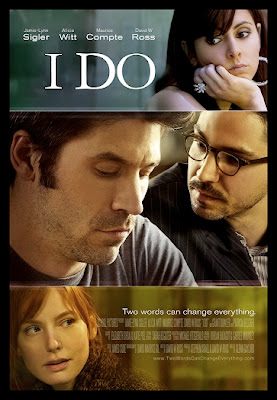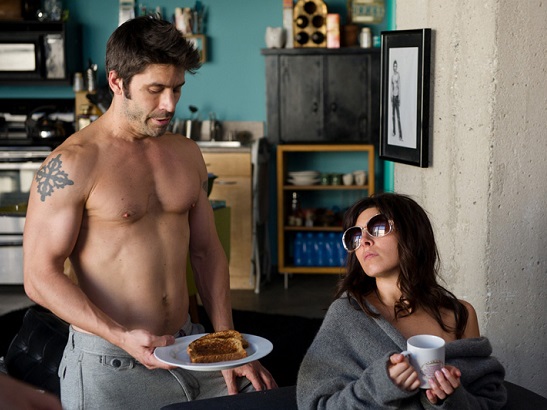This is a guest post by Emily Campbell.
Here’s some sobering news: if you’re not a U.S. citizen, same-sex marriage isn’t going to score you a green card. And, unless you can make sense of immigration legalese and have overwhelming amounts of luck on your side, seeking asylum as an LGBT individual probably isn’t either.
Sure, you can marry your spouse in some states and everything is perfectly legal, but good luck getting them a green card or permanent residency because surprise! The federal government says no. State-federal alignment, what state-federal alignment? And you can totally apply for asylum, but first you have to prove you’re queer enough, that you’re in danger of being persecuted for being queer in your country of origin, and you have to do this within a year of arriving in the U.S. or it’s straight to deportation.
I’d been reading about cheerful things like the obstacles faced by LGBT asylum seekers and all the creative ways U.S. immigration law manages to avoid actually granting asylum when I first heard of I Do. An indie film bearing the vaguely ominous tagline “Two words can change everything” and promises of a plot centered on a playing-it-straight green card marriage, it sounded right up my alley. According to director Glenn Gaylord:
The film touches upon some very profound issues of our time, the Defense of Marriage Act, and how even though gay people can get married in certain states in this country, immigration is a federal right. So even if a gay person legally marries someone, it doesn’t grant citizenship, because of DOMA. All told, despite its hot-button topicality, this is the very human story about a man who has to decide whose life he’s living.
 |
| Movie poster for I Do |
Intense, right? Essentially, my first thought was “I need to see this yesterday.”
I Do kicks off with some narration from our humble protagonist, Jack (David W. Ross): “I do believe in fate. I do believe in family. I believe in telling the truth and that your actions have consequences.”
Please note the strategic repetition of “I do.”
Jack’s life is kind of tragic. He’s a transplant from England who’s been living in the U.S. since he was 17 and (spoiler) his brother bites it within the first five minutes of the movie. This happens right after said bro announces over dinner that his wife Mya (Alicia Witt) is pregnant, and isn’t that a wonder since he only married her for a green card. There’s always that one family member making really tasteless jokes at the table. Jack politely congratulates him anyway, then politely bears it when his bro talks about sometimes wishing he were gay because–get this–those intrepid bohemian homosexuals have no responsibilities or ordained path, and he feels like he’s conforming to societal norms by being married and having a kid. Right, then.
We fast-forward a few years, and Jack’s doing all right for himself. He works as a photographer’s assistant and fills his off hours by being the greatest gay uncle ever for Mya’s preposterously sweet daughter and the greatest BFF ever to his coworker Ali (Jamie-Lynn Sigler), who also happens to be a lesbian. Then things get sticky when Jack’s work visa is denied. The explanation? Everything’s harder since September 11, which means he can’t just renew his visa. Instead, he has to go back to England and begin the whole process again, and even then he might not be eligible for another since he has a denial on his record. Leaving his life in New York to wait things out in England is just plain out of the question, as is remaining in the U.S. illegally and risking deportation.
 |
| Jack (David W. Ross) and Aly (Jamie-Lynn Sigler) bonding and providing some equal-opportunity objectification |
But, his lawyer conspiratorially tells him, he can still get his hands on a green card if he marries. A woman. And he has just two months to figure out what to do.
Fortunately for Jack, Ali’s girlfriend recently dumped her and made her move out, leaving her newly single and with nowhere to live.
Enter fake marriage. Don’t ask why Ali goes along with it so readily; I’m not sure either. But it means we get to see her being quietly conflicted about helping a friend and potentially going to federal prison for it, which entails lots of lingering shots of her doe-eyed, adorably accessorized visage. So there’s that.
 |
| Jamie-Lynn Sigler as Ali in I Do |
And this is where the real problem comes in. We’re clearly supposed to feel bad for Jack’s plight and the DOMA-fueled injustice being heaped on him. But as things escalate and Jack suddenly falls for Spanish architect Mano (Maurice Compte), the casual viewer is more likely to feel bad for Ali, who has to deal with him gallivanting all over the place and not even trying to make their relationship seem remotely realistic. Her future is on the line right along with Jack’s, but Jack never seems to have an inkling of just how big of a risk they’re taking for his sake.
There’s also the fact that the chemistry between Jack and the newfound love of his life is anemic at best, but we’re supposed to believe it exists for the sake of a plot point. And while this could just be my own personal bias about what constitutes romance and what constitutes creepy, Mano showing up (unannounced and unsolicited) with coffee and changes of clothes for Jack and Mya while they’re staying the night in a hospital reads as more of the latter than the former. Especially considering Jack and Mano have met all of twice at this point.
Mano is also sketching their future dream home by the third date and promising to go to England with Jack if he gets deported. And he happens to conveniently be an American citizen. However, as Jack’s lawyer points out, Manu can marry Jack legally in New York and it still won’t make a difference since immigration is a federal issue. In case those of us following along at home missed anything, she spells it out for them and says point blank that they don’t have the same rights as a straight couple.
Ali, meanwhile, is petrified of going to prison for being Jack’s fake wife. Then immigration officers show up while Jack is out with Mano generally being the worst fake husband ever even though their relationship is weirdly unbelievable.
Okay, that’s not entirely true. There’s one scene where Mano tells Jack the scar on his chest is from when his father caught him in bed with a neighbor’s son, which has the potential to be very poignant. Or it would be if the theme of family being important hadn’t already been hammered home time and time again. And since the linchpin of Jack wanting to stay in the U.S. is his own adopted family of Mya and her daughter, this makes his eventual resolution incredibly jarring.
It all wraps up with another earnest monologue from Jack. “I believe in family. I believe in fate. I believe we should all have the freedom to love. I believe in love. I do.”
That said, there are bright spots amidst all the doom and despair. Alicia Witt is excellent as Mya, trying to make ends meet and move on with life, simultaneously loving Jack and hating him for being alive instead of her husband. And Mickey Cottrell is great as Jack’s mentor, Sam, who at one point confides in Jack that the only reason he ended up with his partner of 32 years was because he knew he was the one and went for it. But at the end of the day, I Do takes a hot-button issue and waters it down immensely. If you want an engrossing story about gay marriage beating the legal system, read about the awesome lesbian couple from Pakistan who took a vacation to the U.K., got married, and immediately filed for–and won–asylum there. Someone really needs to make a movie about that.
Emily Campbell is approximately three fifths finished with this cup of chai and five fifths finished with grad school. She has previously reviewed Cracks and War Witch for Bitch Flicks.
